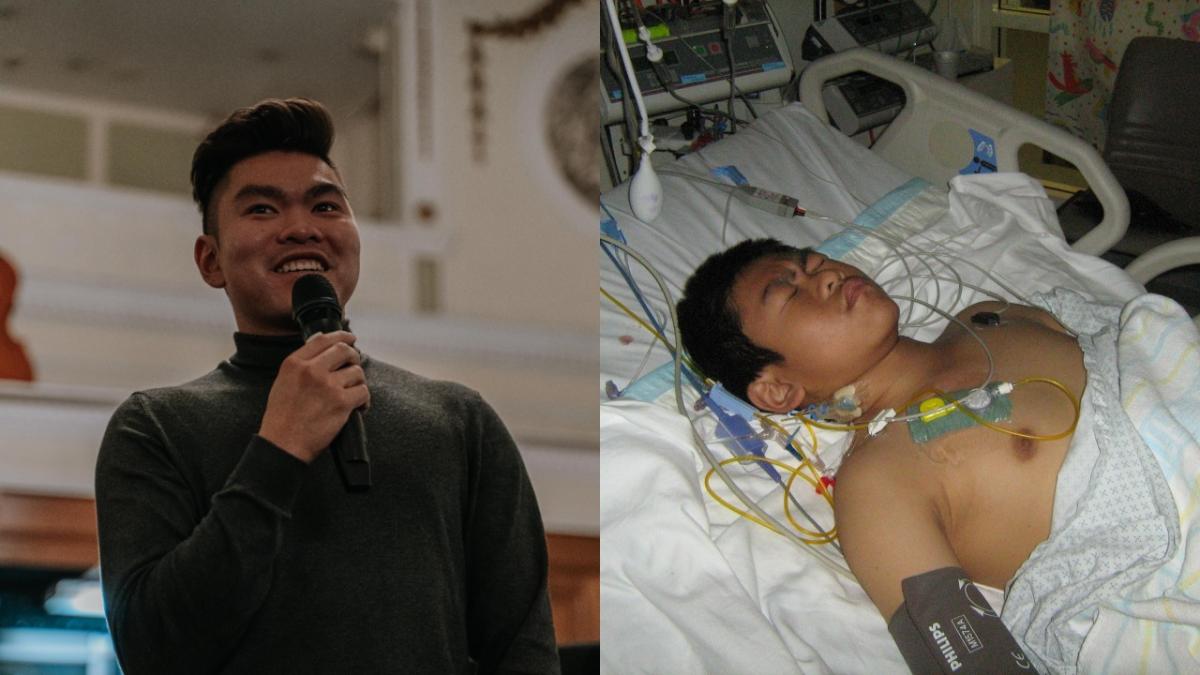
Every day in Australia, there are roughly 1,800 people waiting for an organ transplant. In 2011, one of them was Andrew Vien-Debetaz, who was waiting for a kidney transplant while navigating high school.
“I knew I was different in the health aspect, but I guess because I’ve grown up with it and that’s all I know, there was an aspect of, well, how much better can it be?” the now 24-year-old told PEDESTRIAN.TV.
Andrew, from NSW, was diagnosed with leukaemia at five years old. A chest x-ray at his GP’s office sent him straight to Westmead Children’s Hospital in Sydney for some blood tests, which is when the diagnoses was made. What was meant to be a six-week stay while he underwent chemotherapy turned into six months.
“It wasn’t a pretty time. I had next to no energy. I lost something like 15kg in two weeks,” he told P.TV.
“I was supposed to have six courses of chemo, but on the third course the doctors decided to stop because I was in such a bad state. They came to the conclusion that if I continued the chemo, it would most likely be lethal.”
In what Andrew considered to be something of a miracle, his leukaemia disappeared – but his kidneys were “wiped out”, and it would be almost a decade before he received a donated one. It meant he went through primary school and then his first couple years of high school on dialysis, just waiting for the phone call.
“Because I had to be on dialysis every day and night, I would have to be home by six or seven o’clock pretty much,” he said.
“So the social aspects that go on after that were pretty much out of the question. During school, one of the biggest things for me was that a lot of the school camps and activities went over two days, so I couldn’t go to them. I was pretty bummed out about that.”

When he was 14 years old, however, he received the phone call that would change his life.
“I remember very distinctly – I’d gotten a new set of speakers and I was sitting up in my room. And then the phone rang. I thought, oh not another advertising thing. But I picked it up, and my doctor was like, good news, we have the perfect gift for you. We have the kidney. And like, you know those times where life just goes to slow motion? That was one of those times. I had no idea what to think, so all I did was just start crying.”
He and his mum had a “massive cry sesh”, and when within a couple hours, he was in hospital undergoing a kidney transplant.
It can’t be understated what a huge change it is for a person without a working kidney to receive one. Most people feel a sense of elation and relief, as well as feeling a energised (although feelings of guilt, anxiety or depression are also common). Barring any complications, people can return to work (or school) in three to six weeks after transplant, start driving two to four weeks after transplant, and travel after two to three months.
However, patients usually wait between six months and four years for a kidney (and sometimes much longer). Right now, there’s around 1,650 people waiting for a transplant, according to Donate Life, and a further 12,000 people on dialysis who would benefit from a new organ.
There’s two factors that make that wait even longer. The first is that it’s very rare for a person who dies in hospital to meet the criteria to become an organ donor (we’re talking less than 2% here). The second is that, despite 69% of Aussies believing registering is important, just one in three are on the registrar.
It’s why Andrew uses his story to raise awareness of organ donations.
“Just plain awareness of what it is, and what it’s for, is my number one wish [for people to understand,” he said.
“On top of that is the true meaning of how much you can change someone’s life. It wasn’t until the transplant that I realised, wow, this is what I’ve been missing out on for a big portion of my life.”
One of those things is being able to pursue a career in photography, as now he’s literally able to leave the house at night and take photos. The other is food, which is high key relatable.
“I was quite restricted [on dialysis],” he said.
“Because of the fluid regulation, you can’t eat a lot of salt. On top of that, it really took the appetite out of me, so I would always struggle to eat a full meal.”
His fave food these days? Dumplings, which we have no choice but to respect.
To register as an organ donor (or check if you’re already registered), head to Donate Life, part of the Organ and Tissue Authority in Australia.



